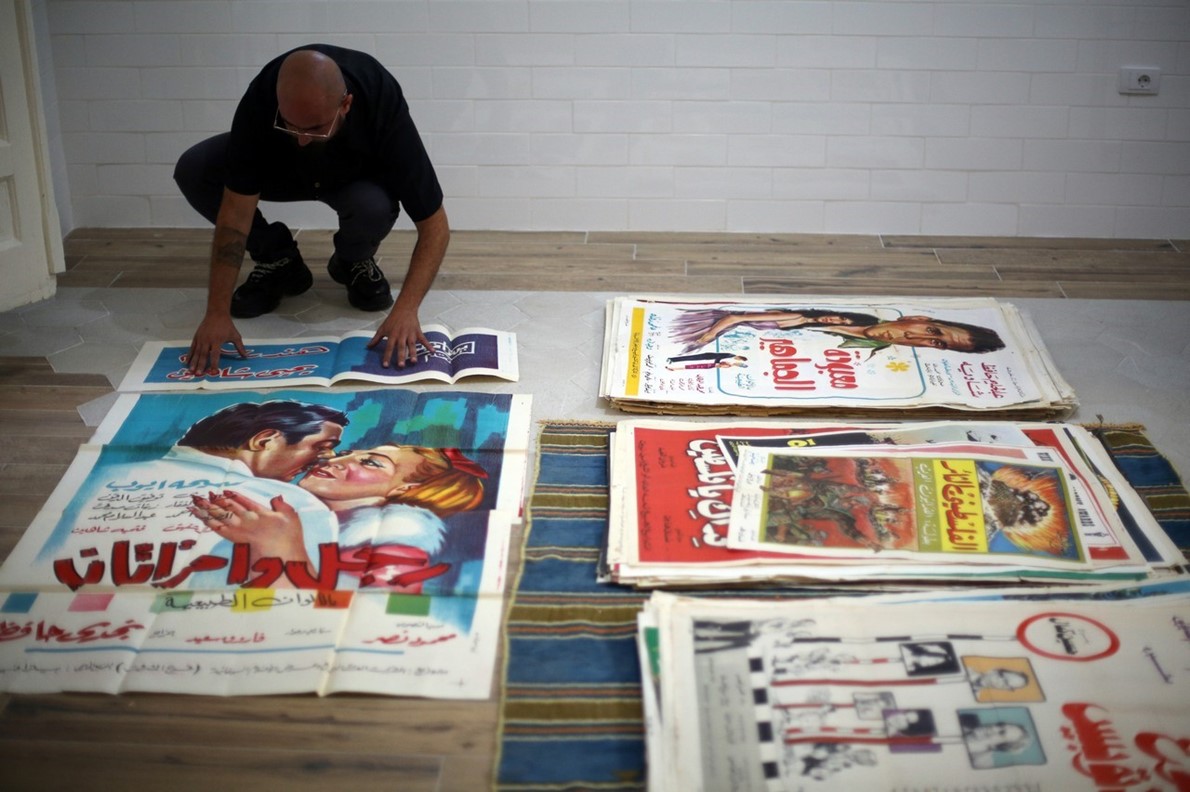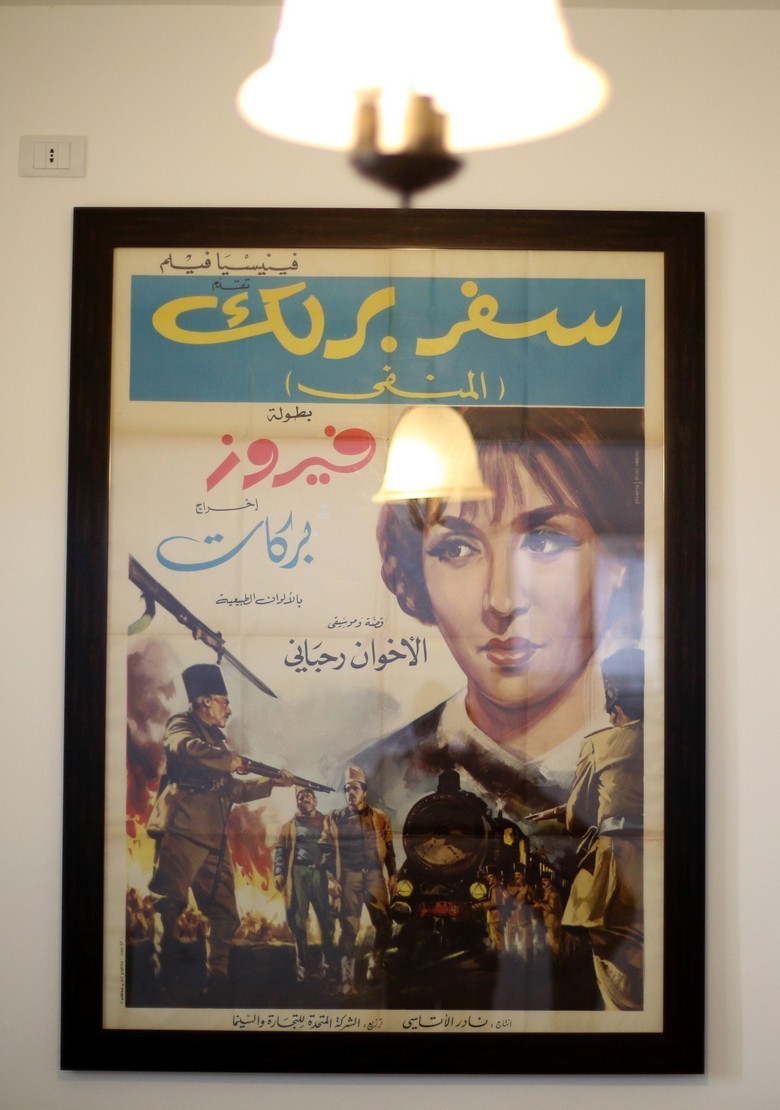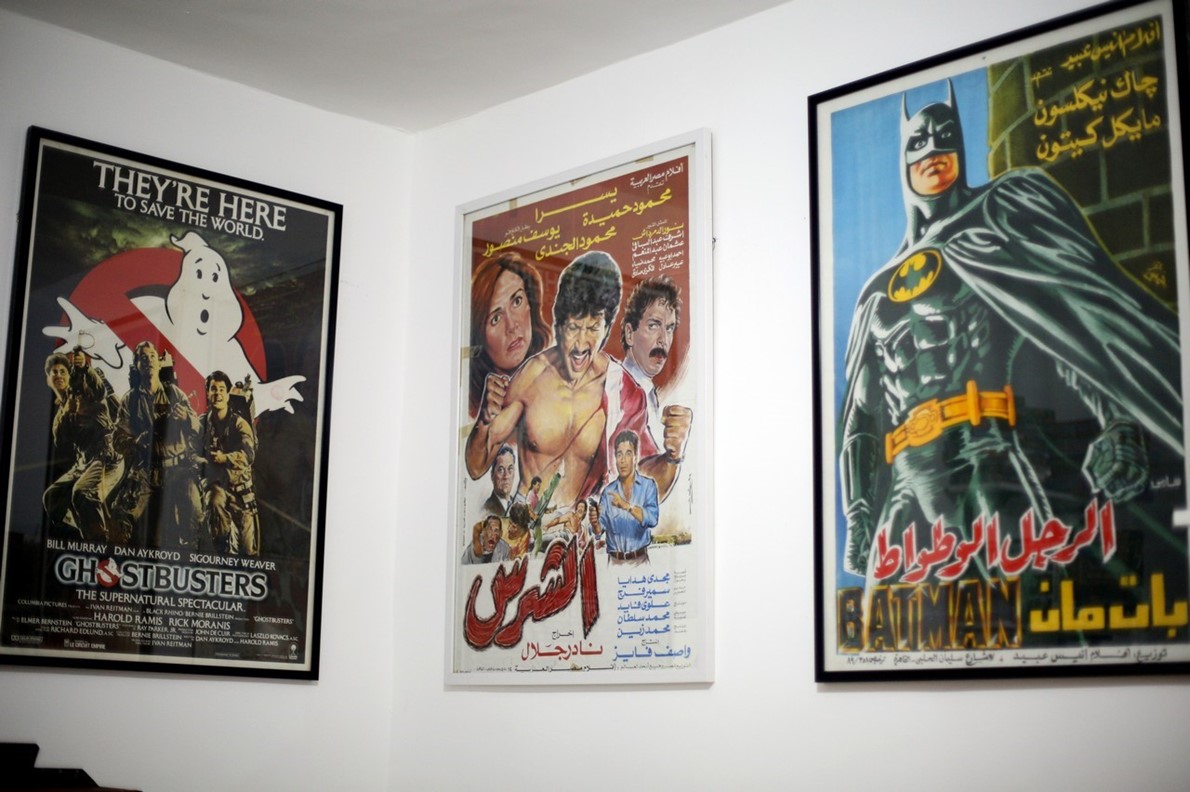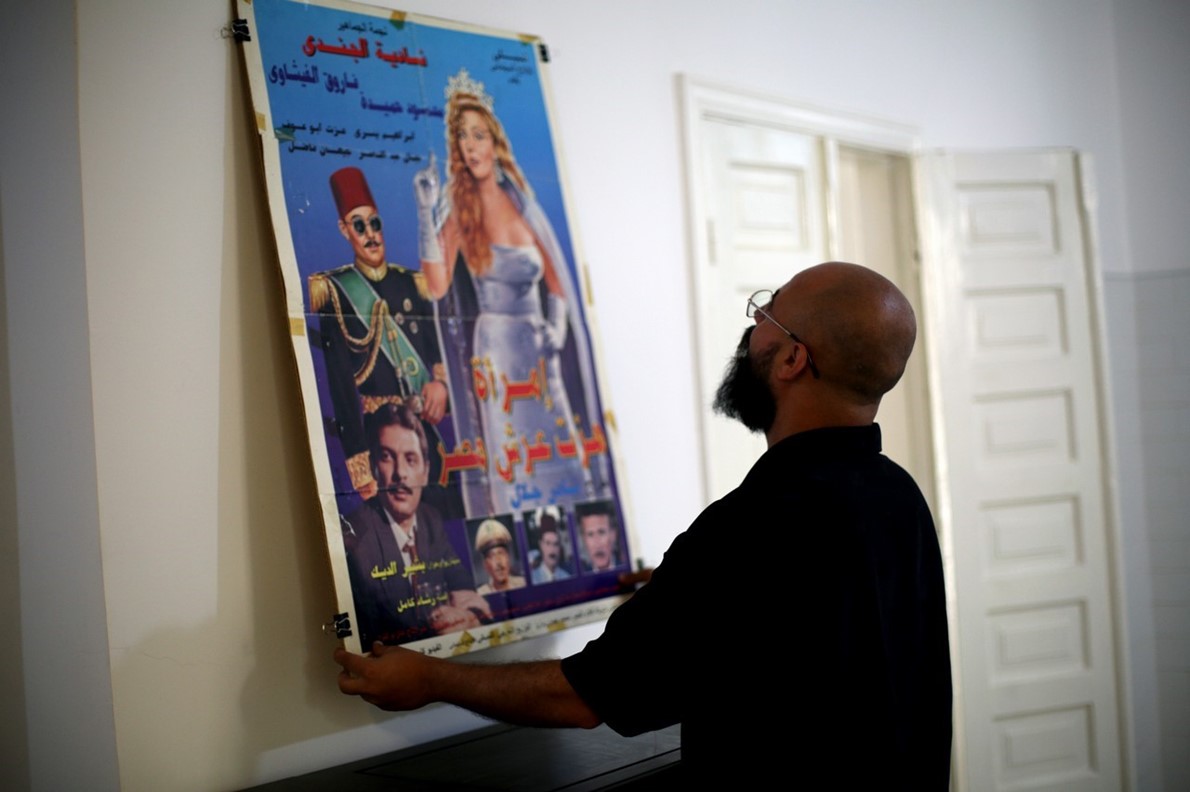Redux: Webster’s dictionary defines the word as “brought back”.
And Redux.Jo, an
Amman-based online store, lives up to its name by bringing back nostalgia
through authentic movie posters and vinyl records, while preserving Arab cinema
and music in its digital archive.
اضافة اعلان
Over a lifetime
of scouring flea markets,
ReduxJo creator Bahjat Al-Hayek has invested his
childhood allowance and adult savings into what is now an important physical
and digital archive from the golden era of Arab Cinema.
“Since I was a
kid, I used to go to flea markets that sell retro stuff,” Hayek said. “I only
had my allowance, so I was just going there, trying to find things to collect
and bring back home. … I was looking for cheap stuff.”

From a young
age, the retro items Hayek collected from markets were often emblems of his
other growing obsession: old films.
“I guess when we
were kids, there was not that much of an option when it came to watching
movies. The TV would always just decide what we would watch, so I started
watching these old movies — the old action movies. For me, these are retro, the
old Arabic movies, especially from the 80s and early 90s.”
The enthusiast
soon became a movie buff, sometimes watching up to two or three movies per day,
especially during the winter. He began to enjoy films for more than just the
storyline, developing a sense for the art, cinematography, locations,
soundtrack, and even the posters.
“Back in those
days, posters were the only way to market a movie and that’s why you will find
flashy combinations of colors with calligraphy, with a lot of details,” Hayek
explained.
“Because it was
the only way of marketing, if it didn’t catch your eye or push you to watch a
movie, then there was no other way.”

Hayek soon
discovered that old movie posters not only highlight the films but also provide
a window into the larger political and environmental landscape of a given era.
“I started
reading about the posters and how even the art itself changed based on the
political background of
Egypt back in the days. It even impacted which colors
to use and which ones not to use, and the posters would try to display whoever
was the most attractive in terms of popular actors or actresses, even if they
were only in a few scenes,” he explained.
Some Arabic
movie posters also reveal details about the budgets backing their films. A
higher-budget film might be evident through the style of artistry on the
poster, or signature marks by the printer, designer, or calligrapher. A film
with a lower monetary investment might rely on name-dropping a popular figure
on its poster (for example, the director Mohammad Khan) to bring in viewers.
As he continued
to dig into the history of Arab cinema, Hayek found a way to combine his love
for flea markets and his movie knowledge with another passion: travel.
“One thing I
like to do is travel, and part of my travel experience is just to go to all
these local flea markets and antique stores,” he said. “Sometimes I even go to
places that only sell garbage — literally garbage. You will find a lot of old
stuff like a juice can.”
Through these
expeditions, Hayek adds to his growing collection of cinematic treasures.
‘Since I was a kid, I used to go to flea markets that sell retro stuff... I only had my allowance, so I was just going there, trying to find things to collect and bring back home… I was looking for cheap stuff.’a
The idea for
ReduxJo started a year ago, when he decided to share his collection with the
public in archive form and make some items available for sale. The venture has
since garnered attention from other cinema enthusiasts, and even some
big-screen stars.
One famous
customer is Nadia El Gendy, a revered Egyptian actress from the golden era of
Arab cinema, who began her career in the late 1950s and has been in over 40
films.
When Hayek
posted an original and rare poster of a 1995 film Gendy starred in, she
immediately reached out.
“Nadia El Gendy
contacted me for a poster that I uploaded, because it is very rare poster and
she doesn’t even have a copy,” the collector explained. “Her manager is
creating an archive and was telling me how hard it is to find these posters —
the actors themselves and sometimes even the directors don’t have them.”
“That’s another
reason I collect posters because there is no archive of these posters,” he
added.
Hayek bridges this
gap by scouting out classic posters and uploading pictures of his finds online
to his archive and IMDB or the Arabic equivalent, El Cinema.
The collector’s
archive contains not only posters from iconic films in the history of Egyptian
Cinema, which are well-known around the region, but also ones from Jordan,
Palestine,
Syria, Lebanon, and North Africa. His personal favorite poster, he
says, is of the 1991 Egyptian film Kit Kat by director Daoud Abdel Sayed.

When he has his
eye on a particular poster, Hayek is in for an adventure, trekking from
collectors to flea markets in search of his prize. Many times, he has had to
reach out to multiple individuals and cinemas, calling friends of friends to
track down a lead. Sometimes, his search ends up fruitless as he discovers that
a collector has passed away or even that a poster has been discarded.
To track
authenticity takes even more time.
“Sometimes,
there is a stamp by the Ministry of Culture. For example, in Jordan, there is a
stamp from the ministry … in Tunisia, there is a visa and the date that the
poster entered the country and how many posters entered the country. The same
is true with Syria,” he explained.
While Hayek
always tries his best to authenticate the posters relying on his years of
knowledge, sometimes it takes more than just historical information — for
example, knowing the printing press and how it was printed can also provide
valuable clues.
“There is
usually no certificate that says (a poster) is an original, but you could know
by the quality itself, by the colors, because if you look at most of the old
posters, you will find a yellowish color,” he said.
Hayek is
continuing to grow his collection and has begun displaying some of his
treasures in businesses. Most recently, some were installed at Kabs
Underground, a gym in Abdali.

The collector
has also been exploring a new “track” by focusing on vinyl records.
“When I started digging
more into
music, I was like: this is the physical music, you can see it on
vinyl. You can see the tracks, that’s where the term track comes from,” he
explained. “So for me, I would say, the thing you can relate to as a kid, the
old technology that you can touch or feel — that is retro for me.”
Read more Odd and Bizarre
Jordan News




